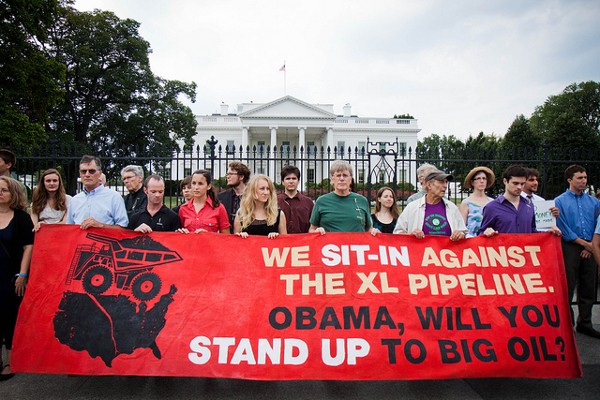
Some Americans believe corrupt politicians who have spent taxpayer money trying ~40 times to cancel the healthcare services were put in place by Obama for people who really need them. The same people probably believe that the Keystone XL (KXL aka Tar Sands) Pipeline will benefit us.
The Washington Post Fact Checker gave 3 Pinocchio rating to the TransCanada Keystone XL Pipeline promoter’s ad claiming benefits it won’t produce, saying “We wavered between Two and Three Pinocchios. But ultimately we decided that given this is an ad for a pipeline to import Canadian crude oil into the United States, it’s really worthy of a late-night satire.” The Wapo’s researcher learned that the Keystone XL Pipeline
…will NOT reduce foreign oil dependence or even Middle East oil dependence:
Okay, but viewers of the ad might be forgiven if they did not realize this fact: The United States currently imports more oil from Canada than it does from the entire Persian Gulf, according to the U.S. Energy Information Administration. Moreover, oil from the tar sands of Canada is expected to replace crude from Venezuela (which one could argue is not a friendly country) or Mexico. The Middle East is really not part of the equation.
and it will not reduce oil prices!
“The price of international oil prices has no impact on the operation of our pipeline and we do not profit from changing market changes,” TransCanada says in a fact sheet. “Prices are set on a global level.” In other words, if oil prices spike because of unrest in the Middle East, the impact will still be felt in the United States.
After being refined, pipeline oil will probably not even stay in America. According to the Wall Street Journal:
Much of the crude oil that would flow down the proposed Keystone XL oil pipeline would likely be exported as refined products by U.S. companies—a prospect that is stirring further debate over whether the project serves the nation’s best interest.
The pipeline won’t create 40,000 construction jobs as claimed, since most of those jobs will be temporary and won’t even run a full year. According to the State Department, the number of construction jobs created will be 3900. The rest of the 36,100 jobs the KXL marketers want to claim credit for is the benefit which will supposedly disperse all across the United States when 3900 construction workers spend the money they make until their temporary construction jobs end.
In other words, you have to assume that money spent in Nebraska eventually helps a bartender in New York or a dancer in San Francisco
TransCanada spokesman Shawn Howard explains this reckoning:
“We track the jobs associated with our project in the same fashion that the U.S. Department of Labor does and believe that every job – whether it is temporary or full-time – is important for the workers and communities involved.”